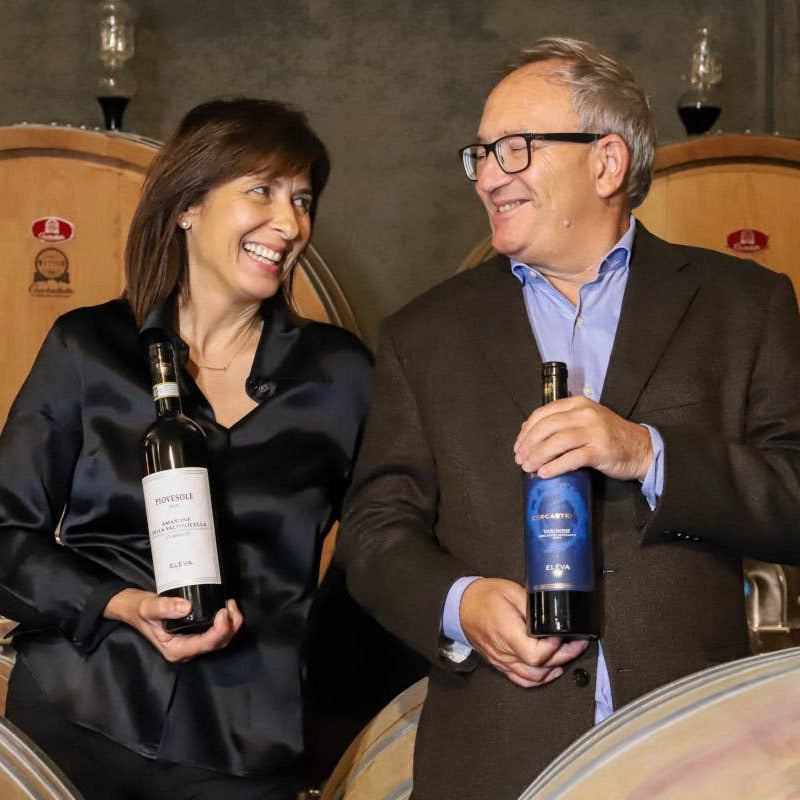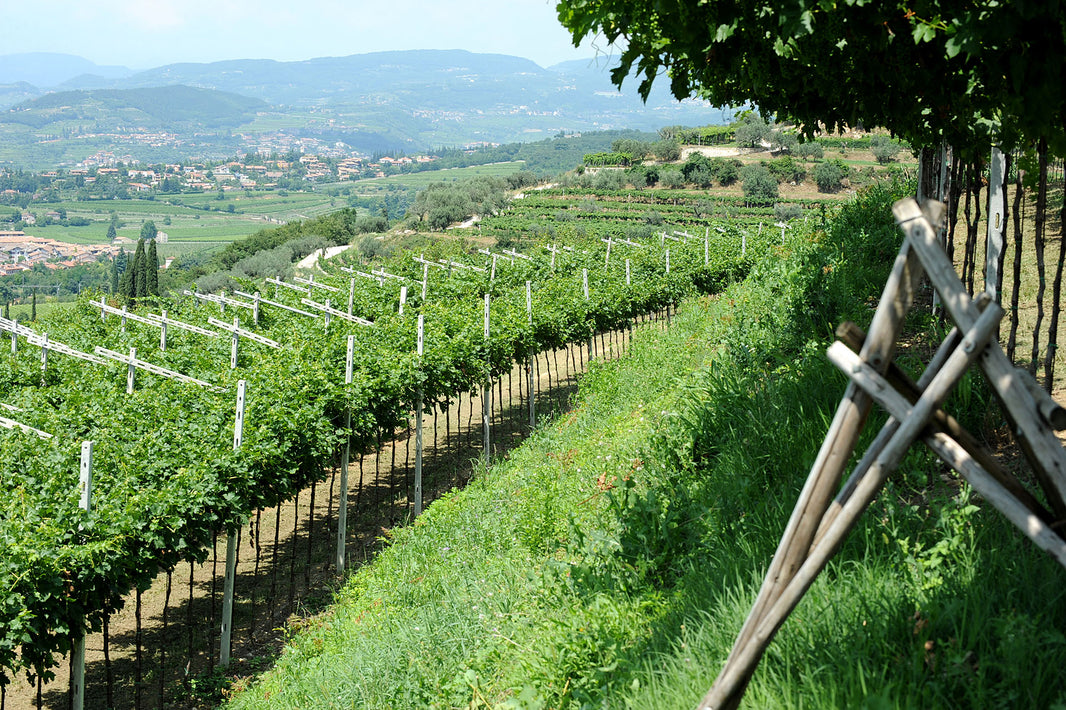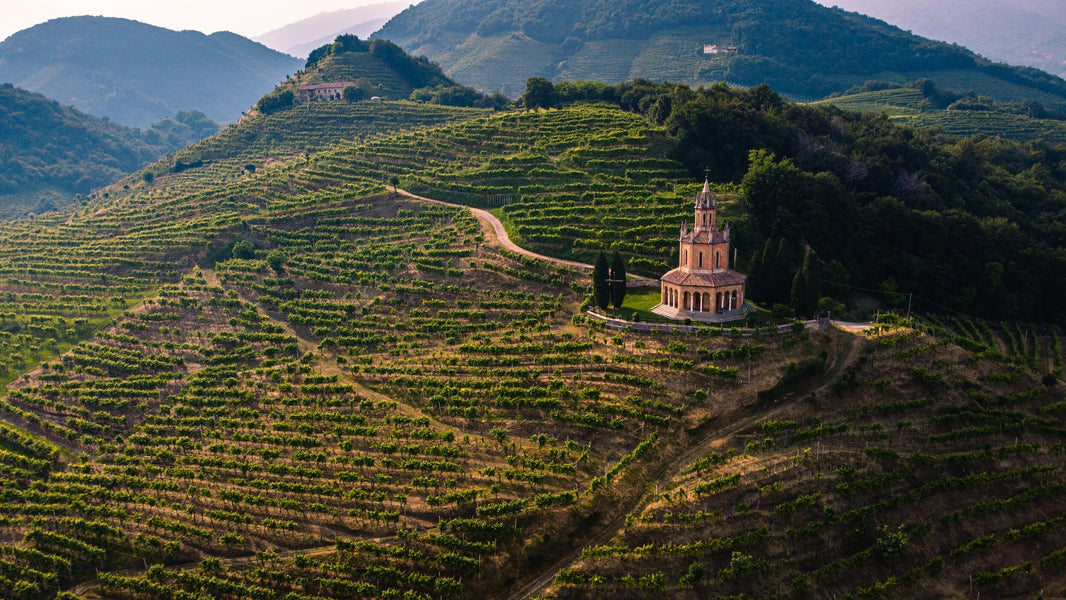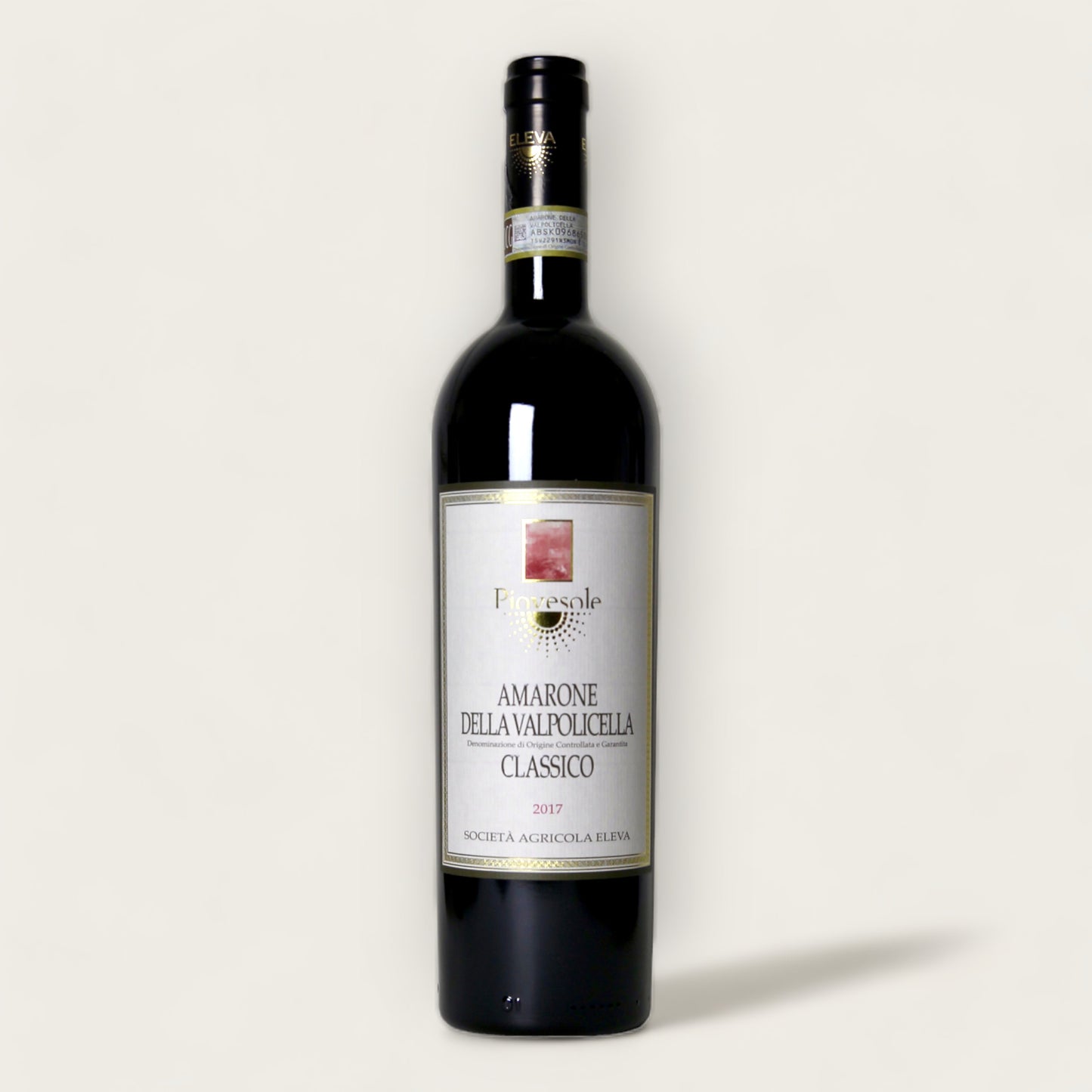Stay up-to-date with the latest news, exclusive promotions, and exciting events by subscribing to our newsletter! Sign up now and receive a 10% discount on your first purchase. Don't miss out on this great opportunity to stay connected with us and get access to special offers!
2017 Eleva – Piovesole – Amarone della Valpolicella Classico DOCG
- Tax included.
Piovesole is a top classic Amarone made from Corvina Veronese, Corvinone, Rondinella, Croatina, Teroldego, Merlot, Molinara, and Oseleta. Harvested from mid-September, the grapes are carefully picked by hand and undergo a 120-day drying process in ventilated fruttaios, enhancing their flavors.
In January to February, after drying, the grapes are destemmed, crushed, and fermented in steel tanks at 20°C for about 20-30 days. This process, allows flavors to intensify. The wine then refines in oak barrels for natural oxygenation, stabilizing color and enhancing aromas. After bottling and resting for at least 9 months, emerges as a limited-production red wine, showcasing the meticulous care in harvesting, drying, and winemaking. It reflects the diverse grape blend, delivering depth and complexity in every sip.
Grape Variety:
Alcohol: 16.0%
Serving Termperature °C: 14-16°C
Ageing Potential: 10-15 years
Terroir: Valpolicella

Eleva

Valpolicella

Veneto


